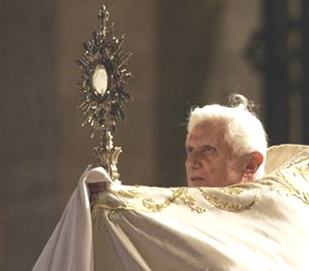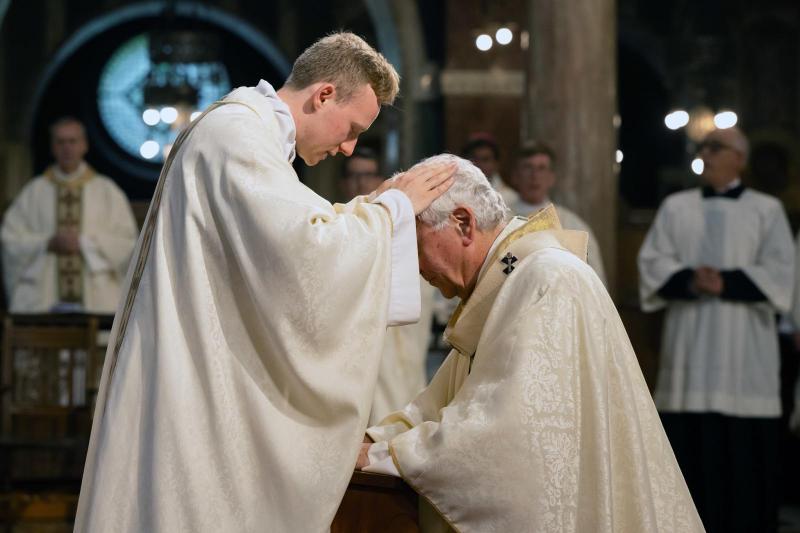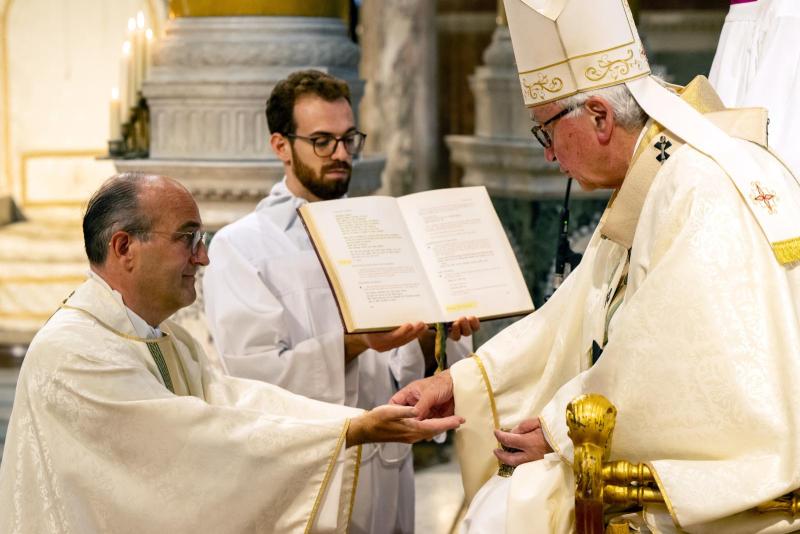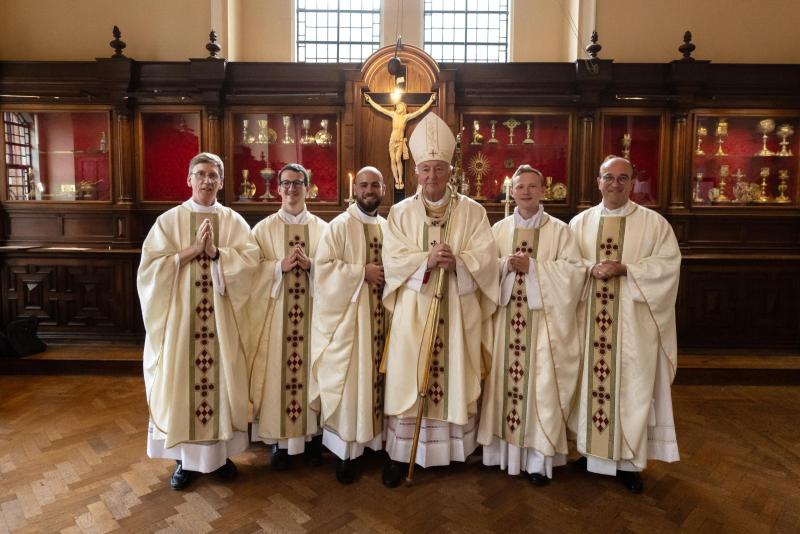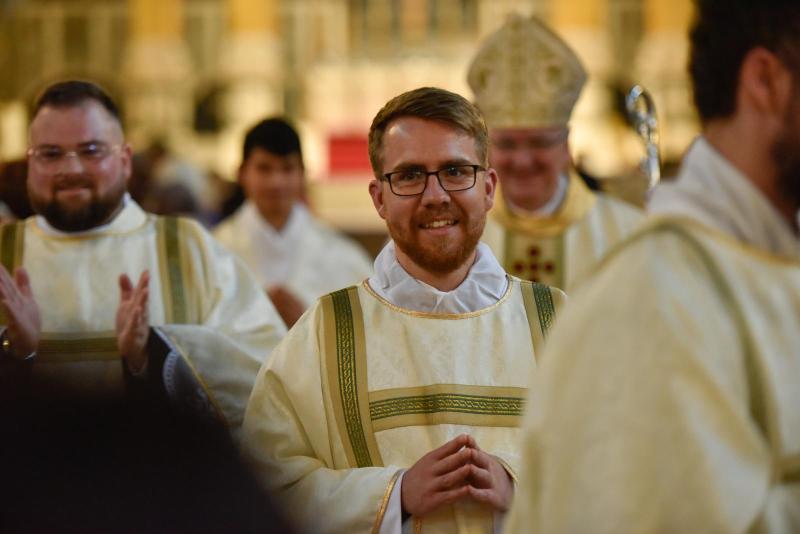Feed My Sheep
Read John 21:4-19 in which the Risen Christ continues his ministry to the disciples by preparing beakfast for them on the shore of the Sea of Galilee! In a particular way Jesus ministers to Peter, asking him three times "Do you Love me" and reaffirming his role as leader for the fledgling Church. His final words to Peter are:
Jesus then said, “Feed my sheep. Truly, I say to you, when you were young you put on your own belt and walked where you liked. But when you grow old, you will stretch out your hands and another will put a belt around you and lead you where you do not wish to go.” Jesus said this to make known the kind of death by which Peter was to glorify God. And he added, “Follow me.” (John 21: 4-19)
A Meditation by Pope Benedict XVI on John 21: 4-19
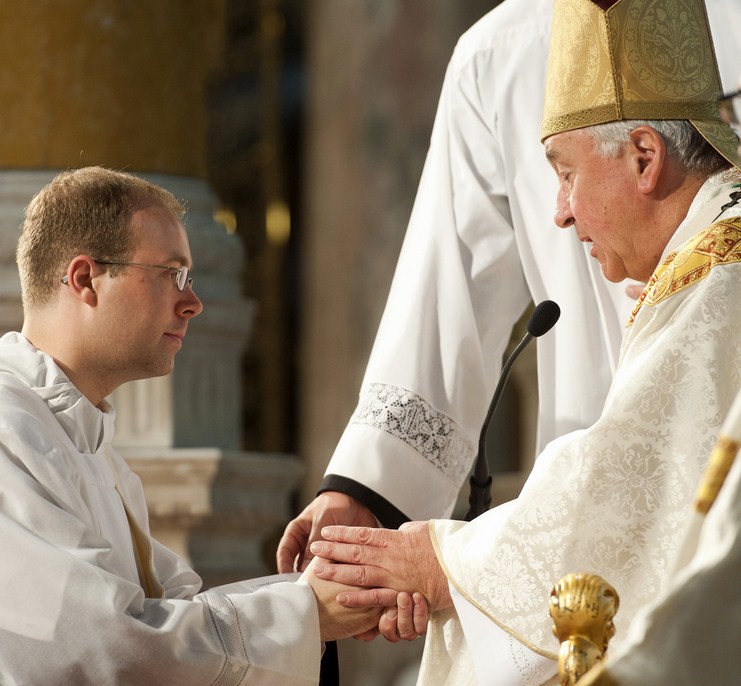
What is Jesus saying about the priesthood? He is making it clear that it is not something which one can choose for oneself. It is not something one can devise as a way of being able to attain security, earn one’s bread, reach a social position. One cannot simply choose it as a means whereby one finds certainty, friendship, security; how one might construct one’s life for oneself. It can never simply be one’s own provision, one’s own choice. Priesthood, if it is right, is not something one can give oneself nor seek oneself. It can only be a response to his will and to his summons.
What is needed is that we should always come out of what is simply our own will in order to let ourselves be led by him, indeed let ourselves be led where we do not want to go. If this basic will is not present to enter into another will and become one with this, to let oneself be led where we had not reckoned on going, then the priestly way is not being trod and could only become a disaster.
Priesthood rests on having this courage to say “Yes” to another will, to respond to the summons of the other, so as thereby evermore step by step to gain the great certainty that, surrendered to this will, we are not annihilated, not destroyed, but enter for the first time into the full truth of our own being. We are in this way closer to ourselves than if we simply clung to ourselves. To follow him, to give this assent – “I am here, I am ready” - is therefore always an Easter event. It has to do with following the cross, with leaving what is one’s own, with doing just what one likes and caring just for oneself, so as to become truly free by leaping into the unknown of this other will. From the cross and resurrection of Jesus Christ we come to know that this will is the power which in truth sustains the world and all of us.
A Meditation by Cardinal Basil Hume on John 21: 4-19
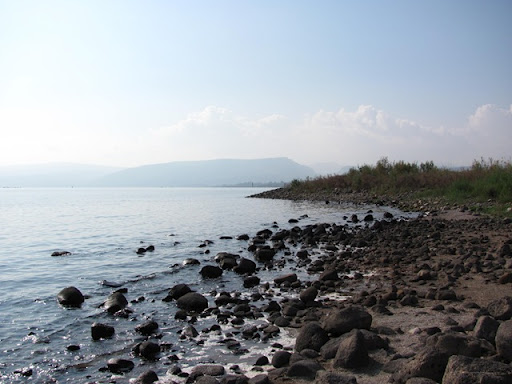 In this encounter by the shore, Christ first tests Peter’s love for him,and then gives him his personal mission to preach and spread the kingdom. In our encounter with Christ, he also invites us to grow in love for him so that we can then discover the concrete mission for which he wants us to give our lives. By learning to love him we learn what he would have us do. Not that he is suddenly going to map out for you in detail your whole life; that can usually only be discovered one step at a time, and by taking each step he prepares you for the next. But the more you love him, the more you will think like him, and the more you will want to do what he wants. We must seek Christ. Nothing else matters, and everything else falls into place when we find him.”
In this encounter by the shore, Christ first tests Peter’s love for him,and then gives him his personal mission to preach and spread the kingdom. In our encounter with Christ, he also invites us to grow in love for him so that we can then discover the concrete mission for which he wants us to give our lives. By learning to love him we learn what he would have us do. Not that he is suddenly going to map out for you in detail your whole life; that can usually only be discovered one step at a time, and by taking each step he prepares you for the next. But the more you love him, the more you will think like him, and the more you will want to do what he wants. We must seek Christ. Nothing else matters, and everything else falls into place when we find him.”
